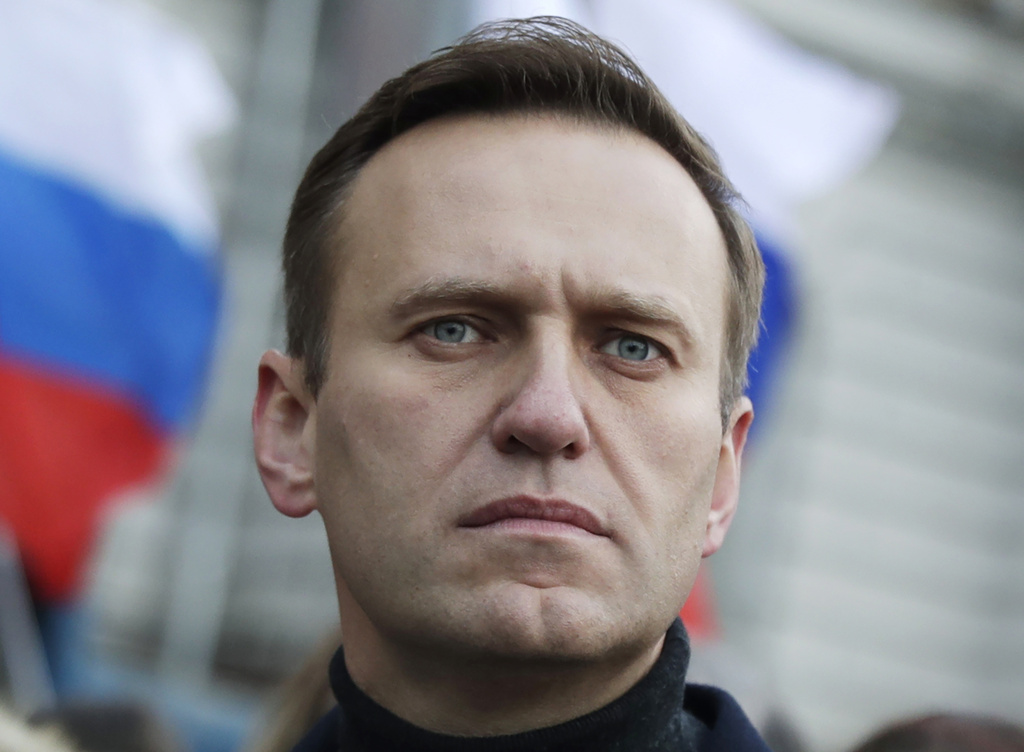A Russian court convicted imprisoned opposition leader Alexei Navalny of extremism charges and sentenced him to 19 years in prison Friday. Navalny is already serving a nine-year term on a variety of charges that he says were politically motivated.
The new charges against the politician related to the activities of Navalny’s anti-corruption foundation and statements by his top associates. It was his fifth criminal conviction, all of which his supporters see as a deliberate Kremlin strategy to silence its most ardent opponent.
The prosecution had demanded a 20-year prison sentence, and the politician himself said beforehand that he expected to receive a lengthy term.
Navalny is already serving a nine-year sentence for fraud and contempt of court. He also was sentenced in 2021 to two and a half years in prison for a parole violation. The extremism trial took place behind closed doors in the penal colony east of Moscow where he is imprisoned.
Navalny appeared in the courtroom Friday afternoon, wearing prison garb and looking gaunt, but with a defiant smile on his face. As the judge read out the verdict, the politician stood alongside his lawyers and his co-defendant with his arms crossed, listening with a serious expression on his face.
The 47-year-old Navalny is President Vladimir Putin’s fiercest foe and has exposed official corruption and organized major anti-Kremlin protests. He was arrested in January 2021 upon returning to Moscow after recuperating in Germany from nerve agent poisoning that he blamed on the Kremlin.
Navalny’s allies said the extremism charges retroactively criminalized all of the anti-corruption foundation’s activities since its creation in 2011. In 2021, Russian authorities outlawed the foundation and the vast network of Navalny’s offices in Russian regions as extremist organizations, exposing anyone involved to possible prosecution.
One of Navalny’s associates, Daniel Kholodny, stood trial alongside him after being relocated from a different prison. The prosecution requested a 10-year prison sentence for Kholodny to 10 years in prison.
Navalny rejected all the charges against him as politically motivated and accused the Kremlin of seeking to keep him behind bars for life.
On the eve of the verdict hearing, Navalny released a statement on social media, presumably through his team, in which he said he expected his latest sentence to be “huge … a Stalinist term,” referring to the Soviet dictator Joseph Stalin.
In the statement, Navalny called on Russians to “personally” resist and encouraged them to support political prisoners, distribute flyers or go to a rally. He told Russians that they could choose a safe way to resist, but he added that “there is shame in doing nothing. It’s shameful to let yourself be intimidated.”
The politician is currently serving his sentence in a maximum-security prison — Penal Colony No. 6 in the town of Melekhovo, about 230 kilometers (more than 140 miles) east of Moscow.
He has spent months in a tiny one-person cell, also called a “punishment cell,” for purported disciplinary violations, such as an alleged failure to properly button his prison clothes, appropriately introduce himself to a guard or to wash his face at a specified time.
On social media, Navalny’s associates have urged supporters to come to Melekhovo on Friday to express solidarity with the politician.
About 40 supporters from different Russian cities gathered outside the colony in Melekhovo on Friday, one of them told The Associated Press in the messaging app Telegram. Yelena, who spoke on condition that her last name is withheld for safety reasons, said the supporters weren’t allowed into the colony, but decided to stay outside until the verdict as announced: “People think it’s important to be nearby at least like that, for moral support. We will be waiting.”
The prosecution asked the court to order the politician to serve any new prison term in a “special regime” penal colony, a term that refers to the Russian prisons with the highest level of security and the harshest inmate restrictions.
Russian law stipulates that only men given life sentences or “especially dangerous recidivists” are sent to those types of prisons.
The country has many fewer “special regime” colonies compared to other types of adult prisons, according to state penitentiary service data: 35 colonies for “dangerous recidivists” and six for men imprisoned for life. Maximum-security colonies are the most widespread type, with 251 currently in operation.
(AP)












One Response
he should have shut his mouth, he should have left Russia…he is as evil as the Zelensky and anyone who wants power, Col Kavod to Hashem…rounding up what is nonsense